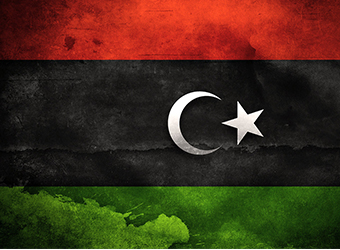A Libyan political source affiliated with country’s western-based government stated that the Libyan army, led by General Khalifa Haftar, is on the verge of retaking Libya’s oil crescent region.
Haftar’s forces have been conducting intensive shelling since last week against the Benghazi Defence Brigades militant group, which has started to retreat in the face of the attacks, according to the source.
Al-Hussein Al-Messri, a Libyan political researcher is based in the country’s east, had expected a breakthrough in the deadlock in negotiations between the rival eastern and western authorities.
However, he believes the latest events have negatively affected the stance of Mustafa Al-Sarraj, the west-based chairman of the Presidential Council of Libya, who has been linked to the Benghazi Defence Brigades’ insurgency in the oil crescent region.
The battles have been the bloodiest fighting yet between the eastern and western camps.
Fawzy Al-Haddad, a political expert, said that the latest events in the oil crescent region had halted the Cairo-sponsored talks, taking negotiations back to step one.
He told Ahram Online however that he expects the deadlock in talks to be resolved soon, as tribes from the oil-rich region are close to reach a consensus on what forces will protect the oil fields.
A political source close to the dialogue in Cairo said that Egypt still sees a chance to resume talks between Libyan rival factions, reflecting that what happened lately in the eastern region highlights the risk of a potential civil war in the country.
On 12 and 13 January, Libyan political rivals reached an agreement in Cairo by underscoring four main principles to be respected in Libya’s transition; the preservation of a united Libyan territory, support for national institutions, non-interference by foreign bodies, and the maintenance of a civil state.
According to statements of the Egyptian-Libyan committee, Cairo is keen to maintain and overcome obstacles to reaching a political resolution in the conflict-torn country.
Cairo has been accused recently of bias in favour of the eastern government in negotiations, but Egyptian sources have denounced these accusations.
These sources stresses that the time prior to 2015 UN-brokered Skhirat agreement witnessed cooperation with the Libyan government in the east in light of the stable security situation and the joint borders between the two countries.
The post-Skhirat period has seen similar cooperation between Egypt and authorities in West Libya.
Earlier, media reports talked about the failure of Cairo talks to achieve a tripartite agreement between Haftar, Al-Sarraj, and the head of the Libyan House of Representatives Agilah Saleh.
Media further said that Cairo rushed into the announcement that an agreement had been reached between the Libyan parties.
However, sources in Cairo said that some important points must be put into consideration, as some Libyan parties are favouring personal and partisan interests.
Cairo has hosted several meetings in the past months with rival Libyan factions to push for discussions that could end the country’s ongoing crisis.
Some countries that are against the Egyptian role in Libya have raised the idea of Cairo’s bias; in light of that, Egyptian officials have conducted several meetings in order to meditate between Libyan rival factions.
Despite Haftar deciding not to meet personally with Al-Sarraj on his latest visit to Cairo, Egypt did not apply pressure in order to guarantee that any agreement reached is purely Libyan.
Libyan political sources affirmed that Egypt could have possibly pressed Libyan representatives to reach an agreement, saying that Haftar’s stance is currently more powerful than Al-Sarraj in light of his advancements on the ground and his retake over the oil-rich region.
Egyptian sources commented that both Haftar and Al-Sarraj have the same amount of wins and losses.
Haftar seems to be advancing during the current period, while Al-Sarraj remains the actual head of the Libyan state recognised by the international community, which means he is an important player who cannot be dismissed or ignored.
Egypt has intensified communication with authorities in the west, and Al-Sarraj is ready to give compensation in coordination with international powers to reach a consensus, which is the very first goal to reach common ground to reach an agreement.
Sources also said that Cairo isn’t sponsoring an initiative as much as a political dialogue to reach a consensus which maintains Libya’s state structure and national institutions, apart from tribal and partisan affiliations.
According to sources, the reaching of a consensus on a mechanism to overcome political dispute in Libya can be seen as the highlight of Cairo talks since last December.
Cairo’s delegation in January stated February 2018 as a due date for a comprehensive election inside Libya’s political institutions.
A high official source told Ahram Online that this date is not compulsory but instead aims to motivate rival Libyan factions to reach an agreement, as Cairo sees that a transitional period, ranging between two and five years, will not help Libyans to face the current political and security challenges in their country.
Source: Ahram online


